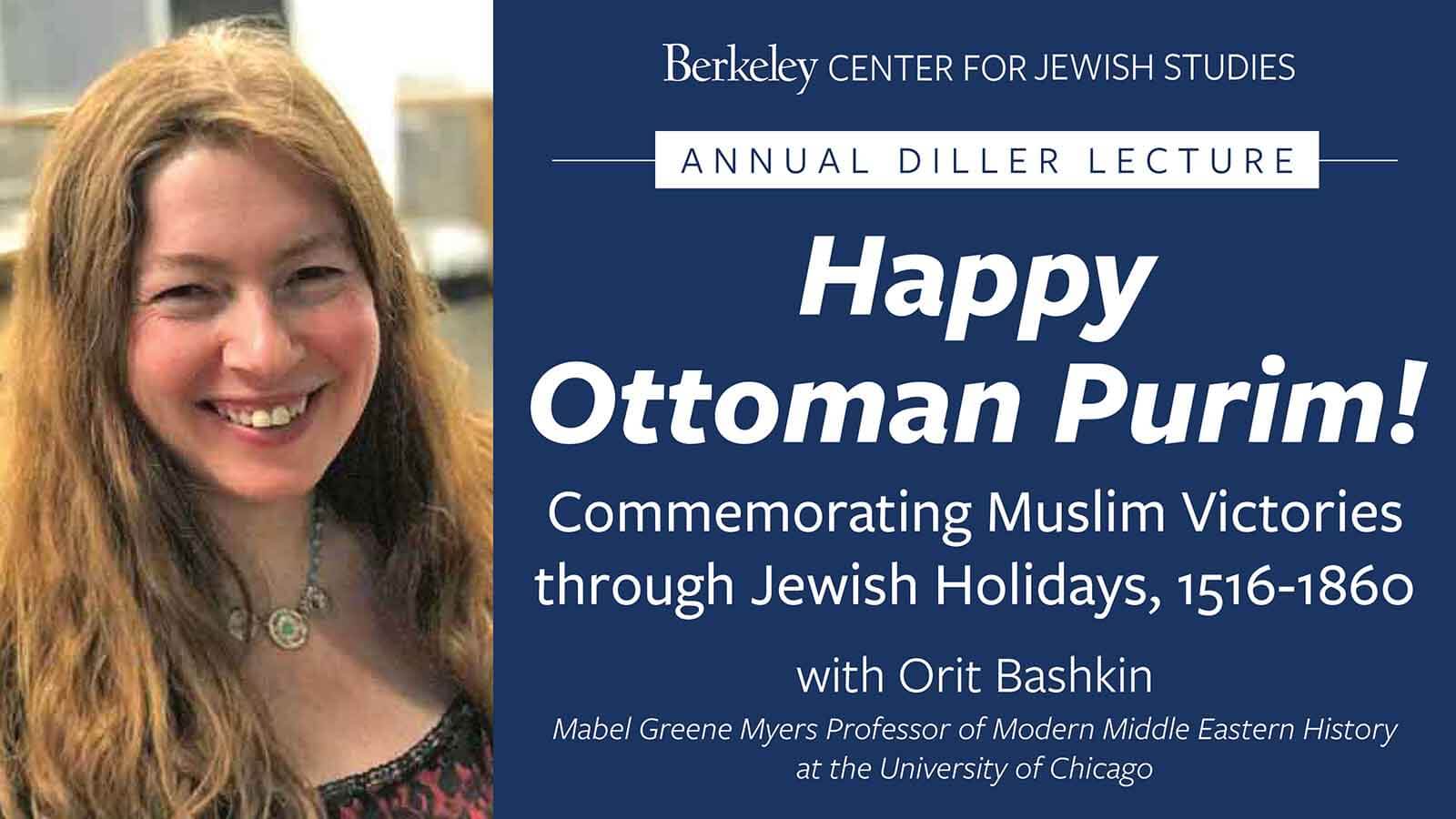
- This program has passed.
Happy Ottoman Purim! Commemorating Muslim Victories through Jewish Holidays, 1516-1860
Nov 7, 2024 @ 5:00 pm - 6:30 pm

Helen Diller Annual Lecture
Presented by Berkeley’s Center for Jewish Studies. Co-Sponsored by the Magnes Collection of Jewish Art and Life and Berkeley’s Center for Middle Eastern Studies.
This talk will explore the history of Jewish communities in the Arab provinces of the Ottoman Empire. Orit Bashkin looks at the ways in which Jews in the Middle East and North Africa favored Ottoman rule, in its imperial and local-Arab forms, and how they perceived Ottoman military victories as components of a Divine plan. Based on Hebrew, Arabic, and Judeo-Arabic texts from the 16th century to the 19th, such as liturgical poems, travel accounts, chronicles, and works of narrative prose, that were rarely, if at all, discussed in Western languages, she reconstructs local, often subaltern, perceptions of imperial subjectivity, told from the vantage point of communities who lived in the Empire. These texts reflect ecumenical traditions circulating in different Muslim, Arab, Jewish and Christian spheres, and their functions as vernacular histories that challenge the ways in which the imperial center conceptualized the relations between Jews and Muslims. The talk will provide case studies from Algiers, Tiberias, and Damascus.
Thursday, November 7, 2024 | 5:00-6:30 pm
In person at the Magnes Collection of Jewish Art and Life, 2121 Allston Way, Berkeley, CA
If you have any questions about accessibility or require accommodations to participate in this event, please contact us at magnes@berkeley.edu or call us at (510) 643-2526 with as much advance notice as possible.
Orit Bashkin is a historian and a professor in the Department of Near Eastern Languages and Civilizations at the University of Chicago. She is the Mabel Greene Myers Professor of Modern Middle Eastern History. Bashkin received her her B.A. and M.A. degrees in 1995 and 1999 from Tel Aviv University, and her Ph.D. from Princeton University in 2004. Bashkin began her research on Iraq in the mid-1990s.
The Magnes’s programs and exhibitions are supported by our community. Click here to make a donation.

